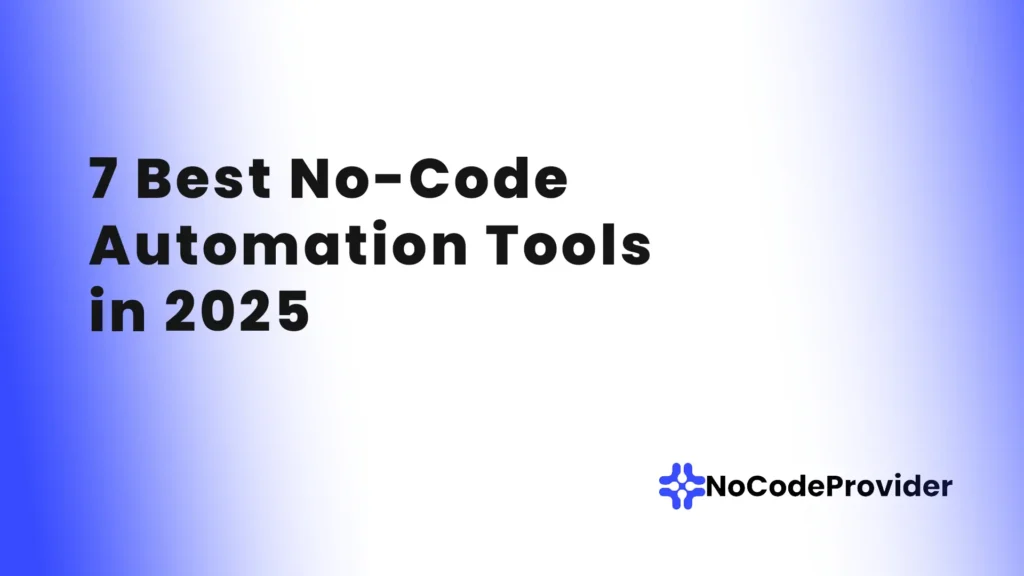As more software development teams adopt no-code/low-code automation tools, the ability to streamline workflows and automate repetitive tasks has become more accessible than ever. These tools empower non-technical users to step into roles traditionally held by developers, creating a new wave of “citizen developers.”
According to Gartner, by 2025, 70% of new enterprise applications will be built using no-code or low-code technologies, a substantial rise from less than 25% in 2020.
However, with the increasing popularity of no-code platforms, choosing the right tool for your needs can take time and effort. Some platforms are tailored for users with basic technical knowledge, while others are designed to require no technical skills at all.
To help you navigate this growing landscape, we’ve compiled a list of our top No-Code/Low-Code Automation Tools. We’ll begin with a quick overview and then dive deeper into what makes each tool unique and suitable for different use cases.
As a prominent agency specializing in no-code and low-code consultancy and services, we help businesses efficiently develop applications and automate workflows using these platforms. Get a Free Consultation
What are No-Code/Low-Code Automation Tools?
No-code/Low-code automation tools are platforms that enable users to create and automate workflows across various applications with or without minimal coding. Users can integrate multiple software tools and automate repetitive tasks such as data entry, file transfers, and marketing campaigns using simple visual interfaces like drag-and-drop builders. These tools are essential for businesses of all sizes, allowing non-technical users to automate tasks quickly and efficiently while reducing dependence on IT teams or developers.
Read Next: The State of No-Code Development in 2024: Reforming Software Development
Top 7 No-code/Low-code Automation Tools
- Zapier
- n8n
- airSlate
- Make
- Softr
- Pipefy
- ActionDesk
Let’s dive into the top 7 no-code/low-code automation tools shaping the future in 2025.
1. Zapier
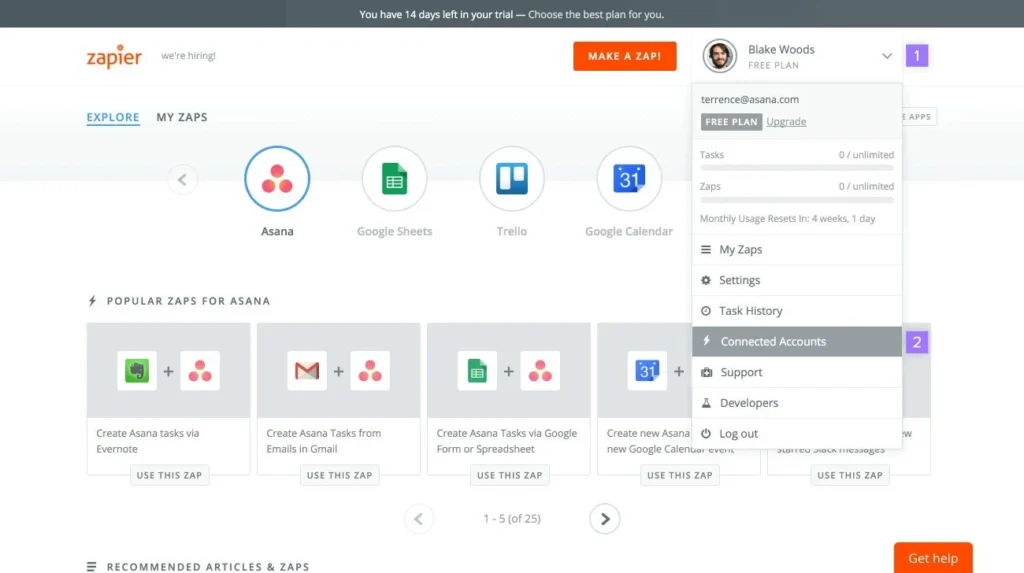
Zapier remains a top choice in the No-Code/Low-Code Automation Tool market, offering integrations with over 5,000 apps. The platform allows users to automate workflows through “Zaps,” automated sequences triggered by specific actions. Whether you need to sync your CRM with email marketing tools or automate social media posting, Zapier provides a simple and effective way to create custom workflows.
- Best for Individuals and small teams automating routine tasks.
- Key Features: Extensive app integrations, simple workflow builder, flexible automation rules.
2. n8n
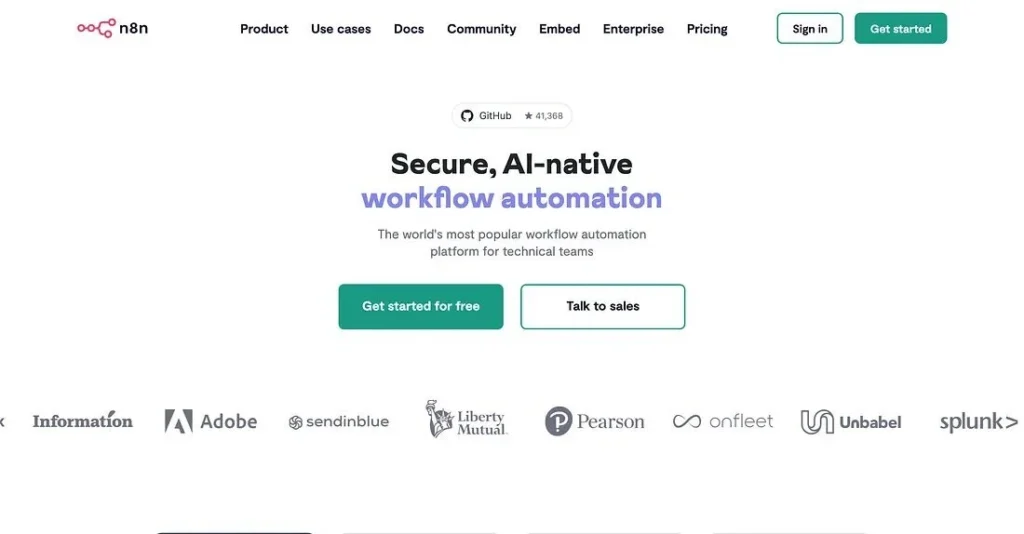
n8n is a highly flexible and customizable open-source automation tool. Unlike other no-code platforms, n8n allows users to self-host workflows, providing greater control over data security. Its interface supports the creation of complex workflows for advanced users while catering to non-technical teams needing customizable automation.
- Best for: Companies needing highly tailored workflows or specific data security solutions.
- Key Features: Self-hosting option, open-source framework, advanced customization.
3. AirSlate
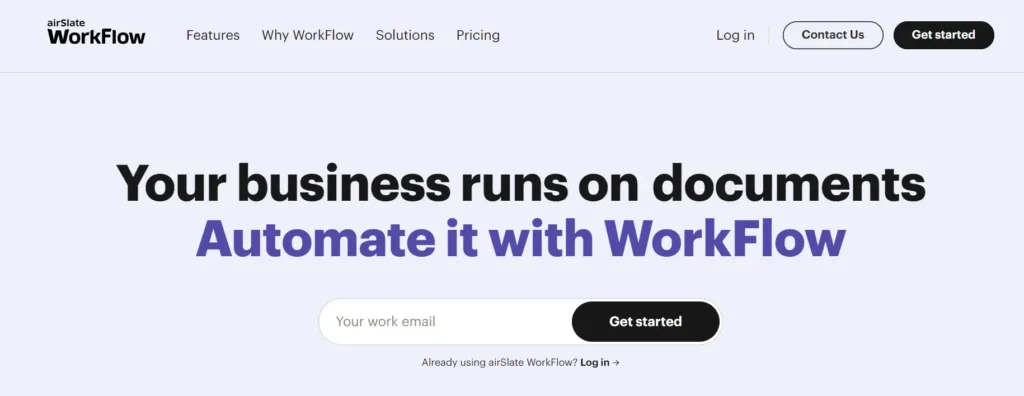
airSlate is a robust automation platform focusing on document management and workflow automation. It is especially valuable for companies dealing with high volumes of documents, such as legal contracts, invoices, and employee onboarding paperwork. The platform allows for document e-signing and approval workflows, making it ideal for industries requiring frequent document processing.
- Best for: Companies that need document-heavy workflow automation.
- Key Features: e-signatures, document workflow automation, real-time collaboration.
4. Make (formerly Integromat)
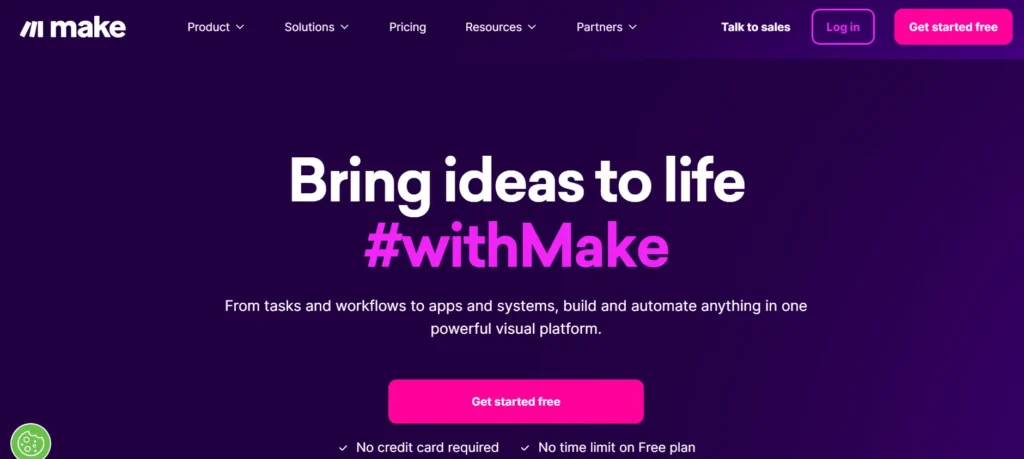
Make is a robust visual automation platform that enables users to design complex workflows across multiple applications. The platform supports deep integrations and multi-step workflows, making it ideal for businesses with advanced automation needs. The drag-and-drop interface intuitively allows users to design complex workflows, reflecting Make a versatile solution for various industries.
- Best for: Businesses requiring intricate multi-step workflows and data manipulation.
- Key Features: Advanced data processing, visual workflow builder, strong integration capabilities.
5. Softr
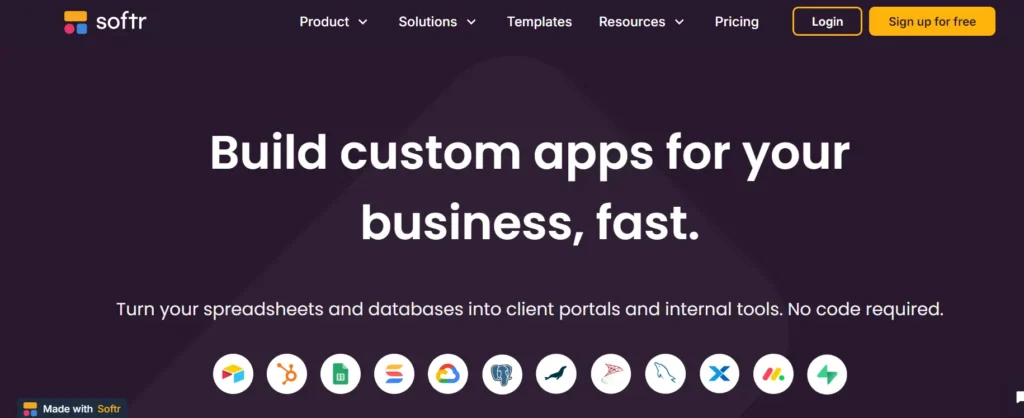
Softr stands out by combining no-code/low-code app-building capabilities with automation. It allows users to build fully functional web apps and internal tools without coding while providing automation features that integrate directly with Airtable. It is perfect for startups and teams looking for a single platform combining web development and automation capabilities.
- Best for: Entrepreneurs and teams building web apps and internal tools.
- Key Features: Airtable integration, app-building with workflow automation, user-friendly interface.
6. Pipefy
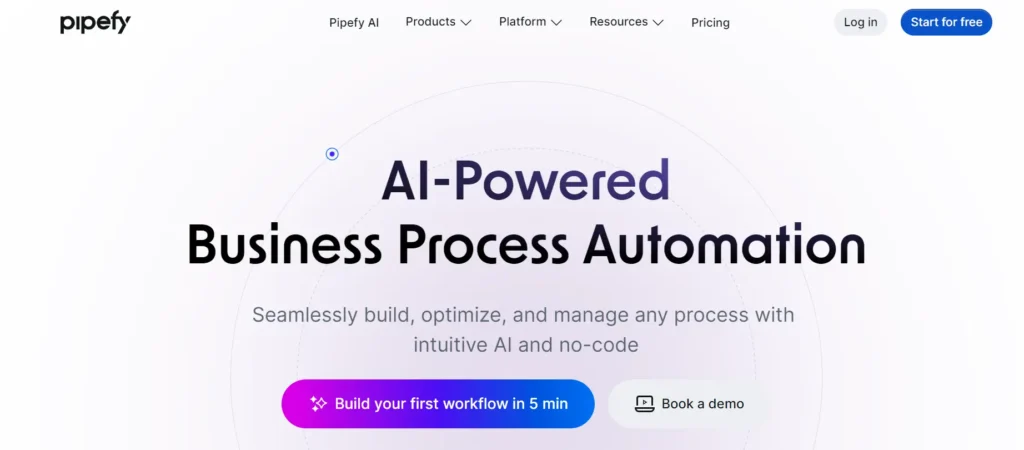
Pipefy is a workflow automation tool designed to streamline processes across various departments, including HR, marketing, and customer support. It offers customizable workflows, enabling businesses to automate tasks like employee onboarding, lead management, and support ticketing. Its intuitive interface and templates make Pipefy a go-to tool for teams looking to manage operations with minimal effort.
- Best for: Companies focused on process optimization and departmental workflows.
- Key Features: Customizable workflows, process templates, and an easy-to-use interface.
Check out another interesting article: Top 10 No-Code Agencies for 2024
7. ActionDesk
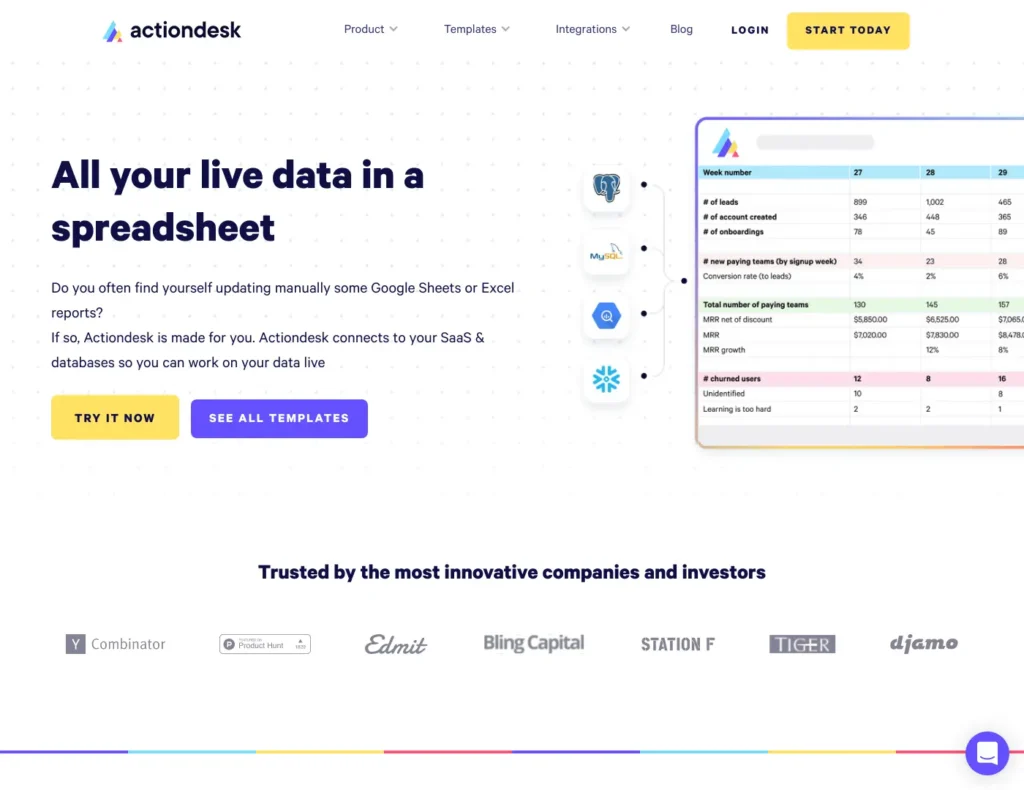
ActionDesk is specifically designed for spreadsheet users needing automation without learning code. The platform connects spreadsheets with popular business tools like Salesforce and HubSpot, automating data transfers and reporting. It’s perfect for teams that rely heavily on spreadsheets but want to avoid manual data entry and reporting tasks.
- Best for: Businesses automating spreadsheet-based reporting and data workflows.
- Key Features: Spreadsheet-based automation, integration with business apps, real-time data updates.
Final Thoughts!
In 2025, the future of automation is increasingly defined by no-code and Low-Code Platforms that empower users to build and scale workflows independently. Whether you’re a startup looking to streamline tasks with tools like Zapier or an enterprise needing advanced integrations from Make or n8n, the best no-code automation tools offer powerful solutions without requiring technical expertise. These platforms allow teams to save time, enhance productivity, and focus on strategic initiatives by automating repetitive and manual tasks.
